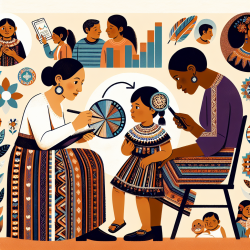As a speech-language pathologist dedicated to fostering inclusive and supportive environments for children, understanding the dynamics of LGBTQ allyship in schools is crucial. The research article "Walking the Talk: LGBTQ Allies in Australian Secondary Schools" by Vicars and Van Toledo provides valuable insights into the role of straight-identified students in promoting LGBTQ visibility and agency. Here, we explore how practitioners can leverage these findings to enhance their allyship efforts and create safer school environments.
Key Findings from the Research
The study utilized a narrative methodology, drawing on interviews with straight-identified secondary students to explore their experiences as LGBTQ allies. The findings highlight several critical aspects:
- Visibility and Representation: Schools with visible LGBTQ staff and inclusive policies foster a more accepting environment. Students reported that having openly LGBTQ teachers and inclusive school assemblies made a significant difference in their willingness to support LGBTQ peers.
- Supportive School Culture: Schools that actively support LGBTQ clubs and student-led initiatives create a more inclusive atmosphere. These initiatives help normalize LGBTQ identities and provide safe spaces for students to express themselves.
- Challenges of Allyship: Being an ally often involves navigating complex social dynamics. Male students, in particular, reported facing more significant challenges in countering homophobic remarks within their peer groups.
- Role of Teachers and Leadership: Effective leadership and proactive teacher involvement are crucial in addressing heteronormativity and homophobia. Teachers who actively support LGBTQ initiatives and challenge discriminatory behavior contribute to a more inclusive school culture.
Implementing the Findings in Practice
Practitioners can take several steps to enhance their allyship efforts based on the research findings:
- Promote Visibility: Encourage schools to hire and support openly LGBTQ staff. Visible representation can significantly impact students' perceptions and foster a more accepting environment.
- Support Student-Led Initiatives: Advocate for the establishment of LGBTQ clubs and support groups. Provide resources and guidance to help students organize and sustain these initiatives.
- Educate and Train Staff: Offer professional development opportunities focused on LGBTQ issues and allyship. Equip teachers with the knowledge and skills to address discriminatory behavior and support LGBTQ students effectively.
- Foster Inclusive Policies: Work with school leadership to develop and implement inclusive policies that explicitly protect LGBTQ students from discrimination and harassment.
Encouraging Further Research
While the study provides valuable insights, more research is needed to fully understand the complexities of LGBTQ allyship in schools. Practitioners are encouraged to engage in or support further research to explore:
- The impact of socioeconomic and cultural factors on LGBTQ allyship.
- The effectiveness of different types of LGBTQ support initiatives in schools.
- The long-term outcomes of LGBTQ allyship for both allies and LGBTQ students.
To read the original research paper, please follow this link: Walking the Talk: LGBTQ Allies in Australian Secondary Schools.










